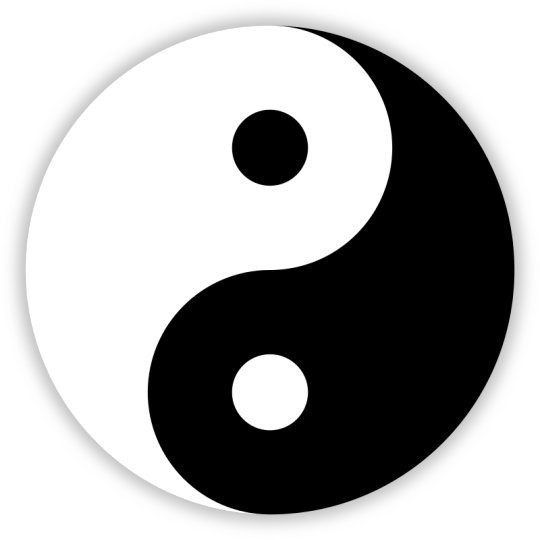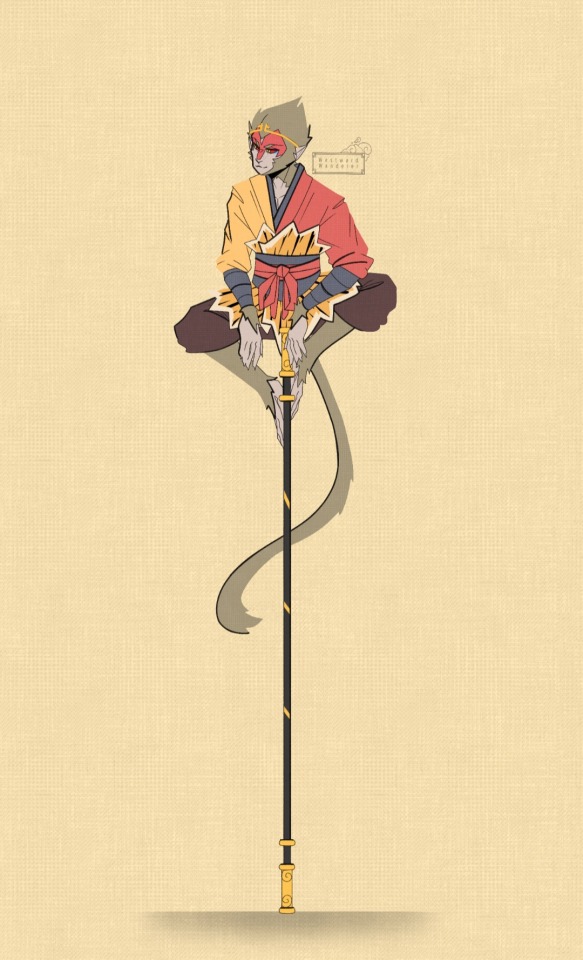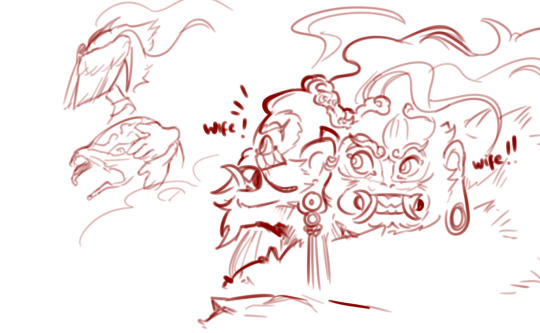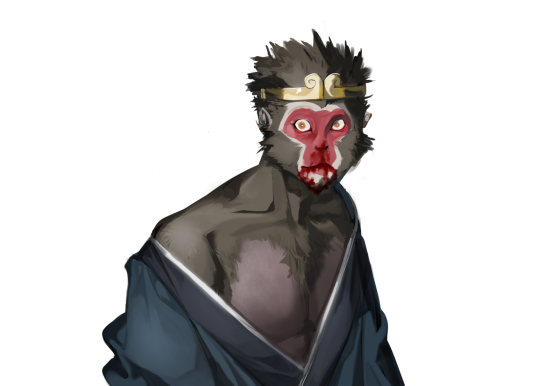Text
in case you guys have been wondering where I've been?
well, its deep in the Nag Hammadi texts xvx
Gnosticism & Lies Of P
My goodness, this was a long time coming. I apologize in advance, this will be a long ride, simply because the topics I need to approach are very complex and obscure by nature. I'm trying to keep it simple for the average layman reader, but not at the expense of academic integrity. Therefore I have made the executive decision to do this in a series, that will then be compiled into a proper, huge article post. Please bear with me as we embark on this journey! If you go into this, know that despite how thorough I end up being, I will be baaaarely scratching the surface of Gnosticism as a topic of study. This is meant only as a very basic showcase of concepts and names for the sake of connecting them to Lies of P, and to cogitate on possible lore implications. I will also try to cover information regarding the Alchemist faction that falls outside of the Gnosticism purview, like Paracelsus, his writings, and Rosacrucian belief. Anything for the lore~! Let's hold hands, and I promise, we'll make it through together. There will be cake at end.
PART I - Baby steps
Intro
Sophia Monad, Simon Manus, Pleroma Forest, Valentinus. One thing all these names have in common (beside being in Lies of P) is Gnosticism and their relevance to it. Trust me, it's not just for shits and giggles.
But, what the fuck even is Gnosticism?
More than once I have seen fellow theorists and lorekeepers in the fandom struggle with the religious aspects of the game, and I wouldn't blame them. Gnosticism is obscure as all hell, and the more you get into it, the more baffling and confusing it can get, and it certainly doesn't help that most of our historical sources are scarce to say the least. In fact until very decently, we only knew about Gnosticism because of their detractors, which as you can imagine, is hardly a reliable source at the best of time.
I want to thank the video by Max Derrat who first brought up these connections to me, and ever since I've been digging further into the topic and I think there is quite a bit of content to bite into. In fact, I think we can even make predictions on what will come for the next game/s! Yes, it's just that relevant!
Christianity before Christianity
I've been scratching my head on how to even begin this whole affair for months. You see, trying to explain Gnosticism to your average layman is a struggle to say the least, not only because it's convoluted as hell, but because, well. It's not even a thing.
For the uninitiated, gnosticism refers to our current understanding of heretical Christian beliefs from early Christianity, as designated by what would become the Orthodoxy. Now what the hell does all that even meant?
We gotta rewind back to early Christianity, as in right after Jesus got crucified and his disciples and followers lost him. Without his guidance, they had to come up with not only what to do going forward, but also well, what the hell does Jesus even mean to them? Back when Jesus died, most Christians agreed that he was significant, but not much else. It comes with a lot of theoretical theocratic debate on what it means to be a Messiah and what salvation is and what it means for humanity and their souls. I will not get into it cus it doesn't really matter to us.
What does matter is that our understanding of what it means to be "christian" and how to "perform Christianity" didn't sprout ready made, despite what your pastor or priest might have told you. It took several centuries for debate to develop the Christian theology we know today as Catholicism. The Bible doesn't contain every single book that was written by the apostles at the time, in fact the contents of what is deemed "canon" changed several times. For a good time in the history of the religion, the Bible wasn't even a thing!
There was no real settled authority to determine what was right for Christianity as a whole. It was a messy, turbulent hotpot of concepts, ideas, gospels, cultures, influences, wanna-be new messiahs and miracle workers, and it was anybody's game on what Christianity could and might become.
What we today understand as Orthodoxy, the "right" way to do Christianity as per the proto-Orthodoxy, who was the let's say "Christianity that won the day". They enshrined what was permissible and what wasn't, decided what would be gospel, and all others were deemed blasphemies and heresies. Those were to be shunned and their teachings mostly lost due to censorship and erasure.
As such, it's worth noting that they did not call themselves Gnostics! They saw themselves as Christians because truly, that is what they were. Gnosticism is a modern term for schools of Christian thought and mythology that have similar concepts and ideas, but that is a term we impose upon them. Likewise, to call them heretical or blasphemous is to discredit them as a valid belief system as any other religion.
An Evil Creator
Now, what does it mean when we say Gnosticism? We have established they ran counter to what we know as Orthodoxy today, but what exactly did they believe and why?
Well, the 'why' doesn't matter to us as much as the 'what', so let's focus on that.
It's worth establishing that, in Antiquity, the nature of a god, be it polytheistic or monotheistic, is that they are Good. You pray to them for whatever reason, but you trust that they are good, and will have your best interests in mind as their creation or devotee. They may punish you, they may be capricious or mischievous, but they are Good and will do Good. They created this world for humanity, their creation, to live in it and prosper. This goes even more so to the Jewish god Yahweh, who was the sole creator of the universe and everything in it.
Therefore, when came the concept that a god, the God who created the world and all within it, was Evil, that was quite the shake up!
See, this concept to us in modernity isn't new. We've all seen or heard of some fantasy story where the Powers That Art In Heaven are evil and wrong actually, or at the very least unfair and mean-spirited. The Matrix, His Dark Materials, The Good Place, Assassin's Creed, Black Myth Wukong, just to name a few, and I'm sure you can think of others too.
There is a looooot of background culturally and historically, from Egyptian donkey-headed demons and Platonic diatribes to demonic genealogy based on a misreading, but those will only confuse you more than elucidate you at this point. So we're skipping it! (lol)
We'll instead jump over to the 2nd Century, where a guy named Marcion of Sinope proposed a theological theory that the god depicted in the Old Testament and the Torah, the god of the Jews, was a vengeful, evil god, who used the Jews to kill the son of the true, actually Good god, Jesus, so maintain his control over the world. As you may imagine, this reeks of antisemitism and indeed, early Christianity is rife with it, but bear with me for a bit here.
If you have dabbled into Christian theology or those atheist manifestos from the 2010s youtube era, you must have come across this thinking before. That the god of the Old Testament is near completely different from the one in the New Testament. One is a vengeful, tyrannical god that commands violence and brutal judgment on those who oppose him, and the other is full of love and forgiveness, who loves his children equally and accepts all sinners who repent and seek his light. How can they both be the same?
The simple answer, to Marcion, is that they aren't. One is God the benevolent father of Jesus, and the other, is the Demiurge. Put a pin on that name.
Normally, this is where I would delve into the arguments that Marcion made for this thesis, which aren't too shabby all things considered, but as I pointed out before, it delves into far too much antisemitism for my tastes and escapes a bit from our focus. Suffice to say, this period in Christianity involves a lot of pointing fingers and accusing one another of being the Devil or demonic or in league with the Devil and demonic powers, yadda yadda, we know the old-song-and-dance. Marcion was himself even called an antichrist and heretic by his contemporaries for this very theory!
What does matter is that Marcion is a name to remember, not only because of this theory, but because he was the first to publish a cohesive canon for the New Testament! It caused the proto-Orthodoxy to release their own canon in response to his New Testament, which sends us to the canon races and what would eventually become the Bible as we know it today.
To be clear, Marcion was not a gnostic nor can his teachings be directly correlated with what we call Gnosticism. Remember, this was a hodgepodge of concepts and ideas of which we struggle to directly connect and correlate to this day. While the concept of an Evil Creator is shared between Marcion in the east and the Gnostics in the west of Rome, the details become harder to reconcile.
Now back to that pin. Demiurge. One might wonder why this name sounds a bit Greek and - besides the fact that early Christian theology did always involve quite a bit of Greek - that's because this name comes from classical theories of philosophy. If you've ever had a (passably decent) lesson in philosophy, then you're familiar with Plato's parable of the cave. The people who are trapped in the cave and only know the "world" by the shadows cast on the wall of the cave, who never learn about the true outside world? Yeah, that one.
The Demiurge functions here are the sculptor of the material world. He can see the shapes and forms from the world of the Ideal, where everything is perfect and good and well, ideal. But he, a fallible creator, with access to imperfect materials, cannot recreate the Ideal world though he's benevolent in truth and wishes to make a good world in kind. Similarly, we flawed humans cannot create ideal works of art thought we try, as we are too many layers distant from the world of the Ideal. Our material world is the shadows on the wall of the cave, mishapen illusions cast from the Ideal, and because it is all we know, we deem it "real" and all there is.
Gnostics have majorly adopted the term and general concept for their flawed creator, and ascribed to him varying levels of "evilness".
The up-coming relevant stuff
Okay, so I just made your read over 1.6k words worth of primers, and you're wondering when I'm finally going to get to the point. Maybe you're not and you're a nerd like me, and if that's the case, I love you. But if you are wondering, then I'm sorry but it will take a little bit more. Sorta.
When I said this time of Christiantiy was chockful of theological theories and dissertations, I wish I was kidding. There are dozens of branches in gnostic schools of thought alone, and those are the ones we know of and have sources or mentions of. It would not feasible to go through the relevant details of them all here without turning it into a college-level class on the topic, so we'll keep to three main branches, which are the ones most people are familiar with anyhow. Well, two main ones and a third one which feels relevant to Lies of P.
Remember how I said Marcion was a relevant figure in all this? Here's another one, Simon Magus. Yeah, jumpscare!
Simon of Samaria or Simon Magus, so named by Irenaeus (he'll come back later) is known in Catholic Christianity for doing all sorts of whacky stuff, from floating to prove his powers only to fall and break his legs, to being the eponym for the sin of simony. For those who don't know, simony is trying to buy or sell ecclesiastical offices, sacraments, or sacred things; basically to exchange spiritual gain for worldly gain.
One would think this man the Devil incarnate or something for such a terrible reputation - and in Bible of all accounts! -, but he's also attributed as the founder of what we call Gnosticism. Which is a debated credit, granted, since he was attributed the founder of the Simonian gnostic sect, which appeared around the 2nd Century. Also, he's not the Devil incarnate but God remade. I'll explain, don't worry.
The major point when it comes to Gnosticism is that, despite minor (and major) disagreements in their world order and genesis retellings, is that they seem to agree that the material world is a prison, and our mortals bodies bound by Fate are shackles. Our souls, our spiritual breaths, are the divine spark given to us from the ineffable realms beyond and above the material world, where we truly belong and where we all should aspire to return to. We are kept here alongside the Evil Creator, the Demiurge, who in his ignorance or jealousy, keeps us from being reunited with the divine source.
In that light, the story and angle we know from established Christianity is completely turned on its head. In Gnosticism beliefs, Eve blessed mankind with true perfect knowledge because she defied the order of the Demiurge, the devilish snake was sent to rescue her and Adam from ignorance and stupidity, and Judas Iscariot was not a cursed traitor, but an instrumental part of the salvation of Jesus from the cage of his mortal flesh. To know and understand these things, is to acquire knowledge, Gnosis - thus the name.
The way one may escape this prison however, and if it's even possible for some people, changes quite a bit depending on the school of thought you're dabbling with, however. For example, for Simon, to awaken to the knowledge of these things and to attune oneself to the divinity within and beyond the material world, is to become divine yourself. As such, all can awaken to godhood in their own right, and become as Jesus in divinity and self-actualization and self-salvation. Kind of WWJD mentality but to the extreme.
There are some other interesting (creepy) bits about this guy, but I'll get to them waaay later, when we tackle the lore implications. His other bit of relevance to us is also that his texts might have been an earlier form of one of our important branches: the Valentinan doctrine.
Valentinus was a major guy in early Christianity, though your average Joe will definitely not know of him. He was a well-known and respected figure among the proto-Orthodox community, known for his hymns and eloquence, and almost was elected bishop! When he was passed up for the position, he allegedly broke with the Catholics and began his own sect which, given the effort Irenaeus and his contemporaries went through to declare his teachings heresy, we can safely assume was incredibly popular.
His gnostic system is by far the most complex (and difficult to understand or explain), but also probably the one you're most likely familiar with, alongside Sethianism. Which, you guessed it, is our second main branch!
Sethianism seems to have had origins in Jewish sects prior to the movement of Jesus, which would become Christianity, but their origins and influences are less attested than Valentinianism. We don't really know who wrote most of their books, and their history is still veiled in lost history. It has however the easiest (though that's not saying much) gospel I've had to go through so far, and the name should ring a bell: The Apocrypha of John.
And what about our sort of third branch? Well, it's dicey. The book itself has been named Pistis Sophia, though the four volumes which form it have no clear title and the name was given to it when they were first translated. The attribution of which sect it belongs to is also not quite settled; some have attributed it to Valentinus (because of course, why not?), while some cogitate Ophitian and Severian, none of which I have an interest in covering here.
This book however, is not only well-known among Gnostic afficionados, but also rather relevant to Lies of P in my view. Therefore, we will cover it rather than whatever possible branch it belongs to. Cool? Cool.
To be Continued #1
Oh, don't look at me like that. I told you earlier this was going to come out in parts, and I did make you sit to almost 3k words of information. So sit back, stew a bit on what you got so far, and let me know your thoughts. Concerns, questions, praises, existential crisis, send them my way!
39 notes
·
View notes
Text
OP: This is the first time I've seen the Yellow River's sediment discharge with my own eyes.
30K notes
·
View notes
Text
Okay but seriously… China gagged the whole world with this everybody else just pack it up it’s over

66K notes
·
View notes
Text

charm designs i made for myself
525 notes
·
View notes
Text


Sun Wukong
Finally finished drawing my own lil take on Sun Wukong. Took some inspiration from several different iterations but I'm quiet happy with how he looks drawing monkey feet is a nightmare I've learned.
Now I just gotta figure out how to draw the other deciples along with my JttW OC, Wren lol
#NEW LITTLE GUY DESIGN ALERT!!!!!#oughhhh he look sso good!!!#love love LOVE when people give him very bold red face markings :D
1K notes
·
View notes
Text

and that’s how the monkey king joined the scripture seeker (real and true) (100% accurate)
3K notes
·
View notes
Text
The victorious Fighting Buddha

My interpretation of Kaiju! Wukong, i wanted him to look a little different and similar to what i had imagined him to be. Which is a bit hard, considering i hated this piece before 😞. A part of me wanted to put as much symbolism in this design while also making it unique, communicating the “victorious fighting buddha” title of his.
More doodles below!



456 notes
·
View notes
Text

snacks saved for later...
(I just learnt that some monkeys, including Sun Wukong, have cheek pouches! like a hamster!)

411 notes
·
View notes
Text
7K notes
·
View notes
Text

He untied his robes and opened his chest with a spectacular ripping sound. A pile of hearts came tumbling out. He scooped up the bleeding heap and sorted through it in full view of everyone: there was a red heart, a white heart, a yellow heart, an avaricious heart, a greedy heart, a petty heart, a competitive heart, an ambitious heart, a scornful heart, a murderous heart... "He's got a lot of heart, this Buddhist," observed the Taoist drily.
Sun Wukong knows so many fun tricks that are enjoyable to everyone else around him :)
714 notes
·
View notes
Text
Last week it was Dragon Boat Festival and there was an event at Universidade de São Paulo with music, lion and dragon dances and boat races!

My friend and I even had a chance to row the boat at the end of the event!


36 notes
·
View notes
Text




Lin Gengxin (aka Kenny Lin) as Sun Wukong, the Monkey King, in Journey to the West: The Demons Strike Back (2017).
89 notes
·
View notes
Text





THIS WAS SUPPOSED TO BE FOR DAY 5 FOR OUBINGZHA WEEK IN JULY 😭😭 The things I do for you guys, sigh...
323 notes
·
View notes
Text

I've been reading Journey to the West and Calvin and Hobbes at the same time, so a crossover was really inevitable, considering who Monkey is as a person. Somehow it felt Very Right to draw him in this style...

582 notes
·
View notes
Text
The physical prowess and foundational skills of jingju京剧 artists
#heads up this chair isn't secured to the ground#<- prev tags#the body control and dexterity to DO ALL THIS#AAAAAAAA
857 notes
·
View notes


